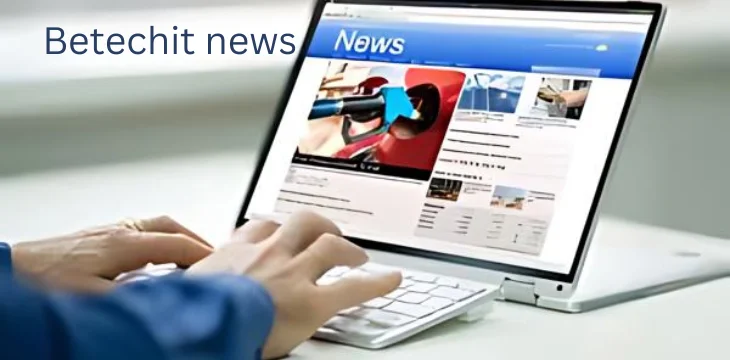Introduction of BetechIT News
In today’s fast-paced technological landscape, staying informed about the latest innovations is crucial. Whether you’re a tech enthusiast, a business professional, or simply curious about the future, understanding the cutting-edge developments shaping our world is essential. In this comprehensive article, BetechIT News brings you the top five innovations that are revolutionizing industries, redefining possibilities, and setting the stage for a future that was once confined to the realm of science fiction.
1. Quantum Computing: The Dawn of a New Era
Understanding Quantum Computing
Quantum computing has long been a topic of fascination and speculation among scientists and technologists. Unlike classical computers, which use bits to process information in binary (0s and 1s), quantum computers utilize quantum bits, or qubits, which can exist in multiple states simultaneously due to the principles of superposition and entanglement. This unique characteristic allows quantum computers to perform complex calculations at speeds unimaginable with classical computing.
The Impact on Industries
The potential applications of quantum computing are vast and varied. In fields such as cryptography, quantum computers could revolutionize data security by rendering current encryption methods obsolete. For example, they could break complex encryption codes in seconds, which would take classical computers millions of years to crack. On the flip side, quantum cryptography could provide unbreakable encryption methods, ensuring data security in a world where cyber threats are ever-evolving.
In the pharmaceutical industry, quantum computing could significantly accelerate drug discovery. By simulating molecular structures and interactions at a quantum level, researchers can identify promising drug candidates faster than ever before. This could lead to breakthroughs in treating diseases that have long eluded effective cures.
Challenges and Future Prospects
While the promise of quantum computing is immense, there are significant challenges to overcome. Building a stable quantum computer requires maintaining qubits in a state of coherence, which is highly sensitive to environmental disturbances. However, ongoing research and advancements in quantum error correction are gradually addressing these issues.
In the next decade, we can expect to see quantum computing transition from a theoretical concept to a practical tool, with tech giants like IBM, Google, and Microsoft leading the charge. The race to achieve quantum supremacy—where a quantum computer can solve a problem faster than the best classical computers—has already begun, and the implications for industries across the board are profound.
2. Artificial Intelligence and Machine Learning: The Power of Intelligent Automation
The Rise of AI and Machine Learning
Artificial Intelligence (AI) and Machine Learning (ML) have rapidly moved from the fringes of technology to the mainstream, becoming integral to a wide array of applications. AI refers to the development of systems that can perform tasks typically requiring human intelligence, such as speech recognition, decision-making, and language translation. Machine learning, a subset of AI, involves training algorithms to learn from and make predictions or decisions based on data.
Transforming Businesses and Daily Life
One of the most significant impacts of AI and ML is their ability to automate and optimize business processes. In customer service, AI-powered chatbots and virtual assistants are enhancing user experiences by providing instant, accurate responses to inquiries. These technologies can handle multiple tasks simultaneously, reducing the workload on human employees and allowing businesses to operate more efficiently.
In healthcare, AI and ML are being used to analyze medical data, predict patient outcomes, and even assist in surgeries. For instance, AI-driven diagnostic tools can analyze medical images with greater accuracy than human radiologists, leading to earlier detection of diseases such as cancer. Personalized medicine, where treatments are tailored to an individual’s genetic makeup, is also becoming a reality thanks to machine learning algorithms that can identify the most effective therapies based on a patient’s unique profile.
AI and ML are also driving innovation in other sectors, such as finance, where they are used for fraud detection and algorithmic trading, and in the automotive industry, where they power autonomous vehicles.
Ethical Considerations and the Future of AI
As AI and ML continue to evolve, they raise important ethical questions. Issues such as data privacy, algorithmic bias, and the potential loss of jobs due to automation are at the forefront of discussions among policymakers, technologists, and ethicists. It is crucial to develop AI systems that are transparent, fair, and accountable to mitigate these concerns.
Looking ahead, AI and ML are expected to become even more integrated into our daily lives. Innovations such as AI-driven creativity, where machines assist in creating art, music, and literature, are on the horizon. The future of AI holds exciting possibilities, but it also requires careful consideration of the societal impacts.
3. 5G Technology: The Foundation of the Connected Future
What is 5G?
5G, the fifth generation of mobile network technology, promises to revolutionize the way we connect and communicate. It offers significantly faster download and upload speeds, lower latency (the time it takes for data to travel from one point to another), and the ability to connect more devices simultaneously. These improvements make 5G a game-changer for a wide range of applications, from streaming high-definition video to enabling the Internet of Things (IoT).
Transforming Communication and Industry
One of the most immediate benefits of 5G is enhanced mobile communication. Users can experience seamless video streaming, faster downloads, and real-time online gaming without the lag associated with previous generations of mobile networks. However, the true potential of 5G lies in its ability to support a massive number of connected devices, paving the way for the IoT to flourish.
In the realm of smart cities, 5G will enable a new level of connectivity among devices and infrastructure. From smart traffic management systems that reduce congestion to intelligent energy grids that optimize electricity distribution, 5G will be the backbone of the connected cities of the future. In healthcare, 5G will facilitate remote surgeries and telemedicine, allowing doctors to perform procedures and consultations from miles away with minimal delay.
The Road Ahead
The rollout of 5G is well underway, with many countries already deploying networks and devices that support the technology. However, there are challenges to widespread adoption, including the need for extensive infrastructure upgrades and the potential health and environmental concerns associated with increased electromagnetic radiation.
As 5G becomes more prevalent, its impact will extend beyond faster internet speeds. It will serve as the foundation for the next wave of technological innovations, from autonomous vehicles to augmented reality experiences. The future of connectivity is here, and 5G is leading the charge.
4. Renewable Energy and Sustainable Technologies: Powering a Greener Future
The Shift to Renewable Energy
As concerns about climate change and environmental degradation grow, the transition to renewable energy sources has become a global priority. Renewable energy, derived from natural sources that are replenished constantly, such as solar, wind, and hydroelectric power, offers a sustainable alternative to fossil fuels. This shift is not only crucial for reducing greenhouse gas emissions but also for ensuring energy security in the long term.
Innovations in Renewable Energy
Recent advancements in renewable energy technologies are making it more feasible and affordable to adopt green energy solutions. Solar power, for example, has seen significant improvements in efficiency and cost reduction. Innovations such as perovskite solar cells, which offer higher efficiency rates than traditional silicon-based cells, are poised to revolutionize the solar industry.
Wind energy is also undergoing a transformation with the development of larger, more efficient turbines. Offshore wind farms, which take advantage of stronger and more consistent winds at sea, are becoming increasingly viable, contributing to a growing share of the global energy mix.
Another exciting development is the rise of energy storage solutions, particularly in the form of advanced batteries. These technologies are essential for addressing the intermittent nature of renewable energy sources. By storing excess energy generated during peak production times, these systems ensure a reliable power supply even when the sun isn’t shining or the wind isn’t blowing.
Sustainable Technologies Beyond Energy
The push for sustainability extends beyond energy production to other areas, such as transportation and construction. Electric vehicles (EVs), powered by renewable energy, are gaining popularity as a greener alternative to traditional internal combustion engine vehicles. Advances in battery technology and the expansion of charging infrastructure are making EVs more accessible to consumers worldwide.
In construction, sustainable building materials and practices are becoming more prevalent. Innovations such as carbon-neutral concrete, which absorbs more carbon dioxide than it emits during its lifecycle, are helping reduce the carbon footprint of new construction projects. Green building certifications, like LEED (Leadership in Energy and Environmental Design), are also encouraging the adoption of environmentally friendly practices in the construction industry.
The Future of Sustainable Technologies
The transition to renewable energy and sustainable technologies is not without challenges. The need for significant investments in infrastructure, the intermittency of renewable sources, and the requirement for large-scale energy storage solutions are just a few of the hurdles that must be overcome.
Nevertheless, the momentum behind the green energy revolution is unstoppable. Governments, businesses, and consumers are increasingly recognizing the importance of sustainability, and innovations in this field will continue to drive progress toward a cleaner, more sustainable future.
5. Biotechnology: Advancing Human Health and Capabilities
The Promise of Biotechnology
Biotechnology, the use of living organisms or their components to develop products and technologies, is one of the most rapidly advancing fields in science. It encompasses a wide range of applications, from genetic engineering and drug development to agriculture and environmental management. Biotechnology has the potential to transform human health, enhance our capabilities, and address some of the most pressing challenges facing humanity.
Genetic Engineering and CRISPR
One of the most groundbreaking developments in biotechnology is CRISPR-Cas9, a powerful tool for editing genes. CRISPR allows scientists to make precise changes to an organism’s DNA, enabling the correction of genetic defects, the enhancement of desirable traits, and the development of new therapies for diseases.
In medicine, CRISPR is being explored as a potential treatment for genetic disorders such as sickle cell anemia and cystic fibrosis. It also holds promise for cancer therapy, where it could be used to target and eliminate cancerous cells with unprecedented precision. Beyond human health, CRISPR is being used in agriculture to create crops that are more resistant to pests, diseases, and environmental stresses, thereby increasing food security.
Personalized Medicine and Regenerative Medicine
Personalized medicine, an approach that tailors medical treatment to the individual characteristics of each patient, is another area where biotechnology is making significant strides. By analyzing a patient’s genetic makeup, lifestyle, and environment, healthcare providers can develop personalized treatment plans that are more effective and have fewer side effects. This approach is particularly promising in the field of oncology, where targeted therapies are being developed to treat specific types of cancer based on the genetic mutations present in the tumor.
Regenerative medicine, which involves the use of stem cells and tissue engineering to repair or replace damaged tissues and organs, is also benefiting from advancements in biotechnology. Scientists are exploring ways to grow organs in the lab, which could one day address the shortage of donor organs and revolutionize the field of transplantation.
Ethical Considerations and the Future of Biotechnology
As with any powerful technology, biotechnology raises important ethical questions. The ability to edit the human genome, for example, has sparked debates about the implications of “designer babies” and the potential for unintended consequences. Ensuring that biotechnological advancements are used responsibly and equitably will be crucial as the field continues to evolve.
The future of biotechnology is bright, with new discoveries and applications emerging at a rapid pace. From curing diseases to enhancing human capabilities, biotechnology is poised to have a profound impact on our lives and our world.
Conclusion: The Future is Now
The innovations highlighted in this article represent just a fraction of the technological advancements that are shaping our future. Quantum computing, artificial intelligence, 5G technology, renewable energy, and biotechnology are not just buzzwords; they are the building blocks of a new era of human achievement.
At BetechIT News, we are committed to keeping you informed about the latest developments in these and other cutting-edge fields. As we continue to explore the frontiers of technology, one thing is clear: the future is now, and it’s more exciting than ever.
Stay tuned to BetechIT News for the latest updates on the innovations that are changing the world. Whether you’re an early adopter, a curious observer, or a seasoned professional, understanding these technologies is key to navigating the future with confidence and insight.








